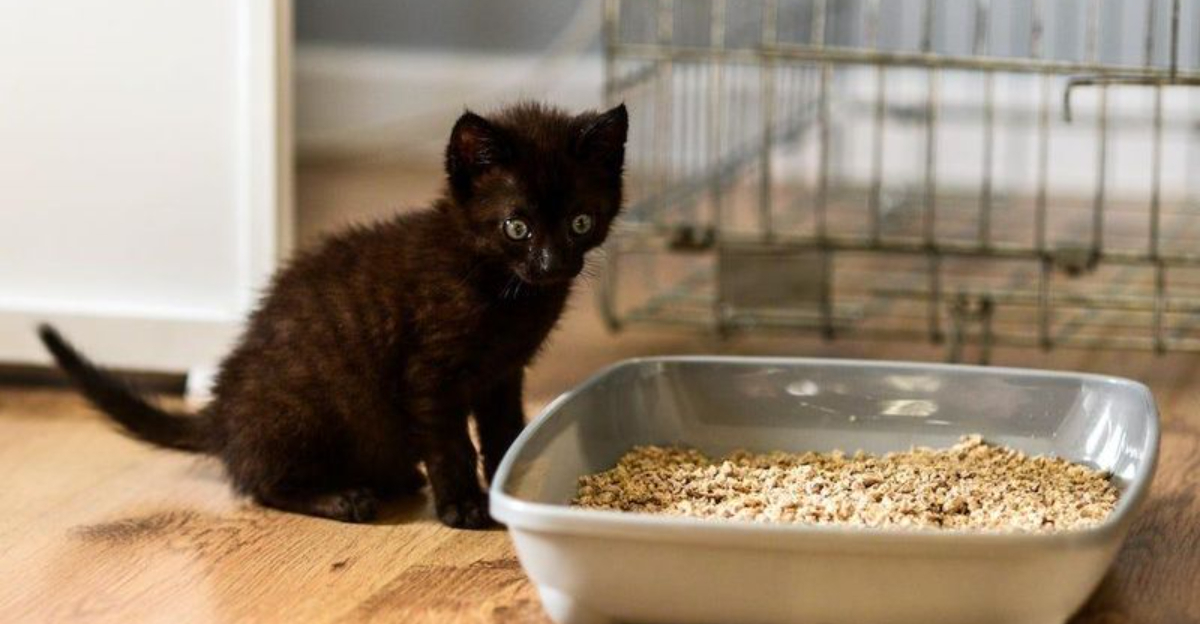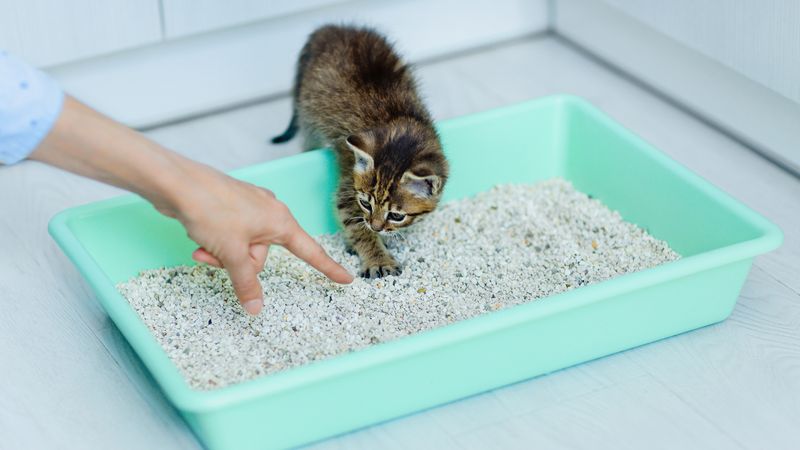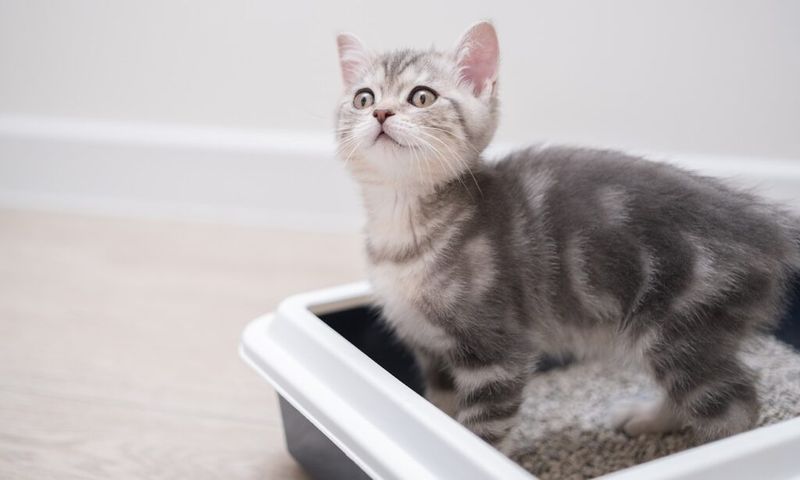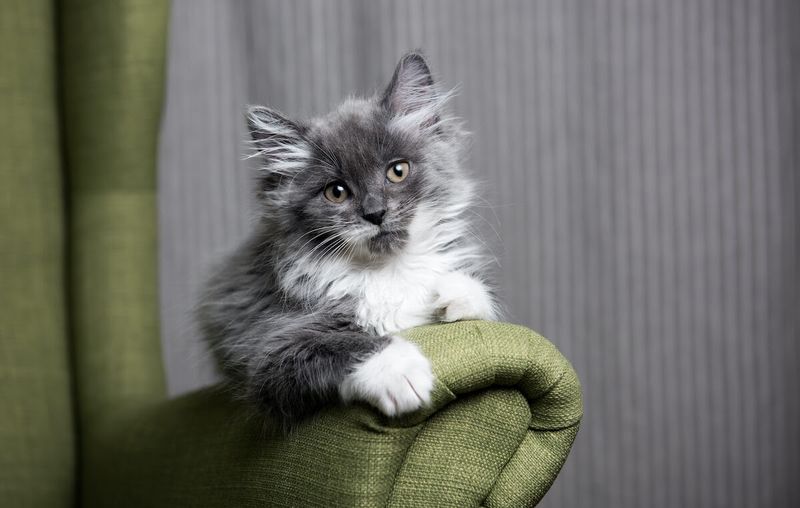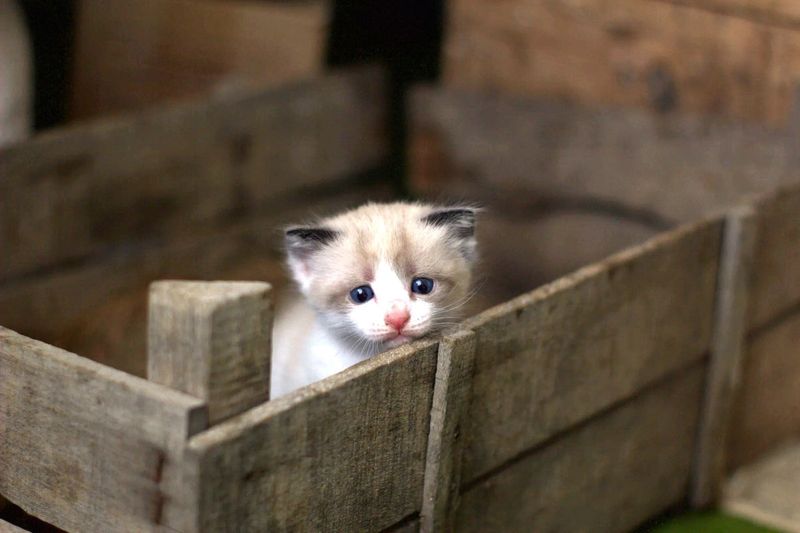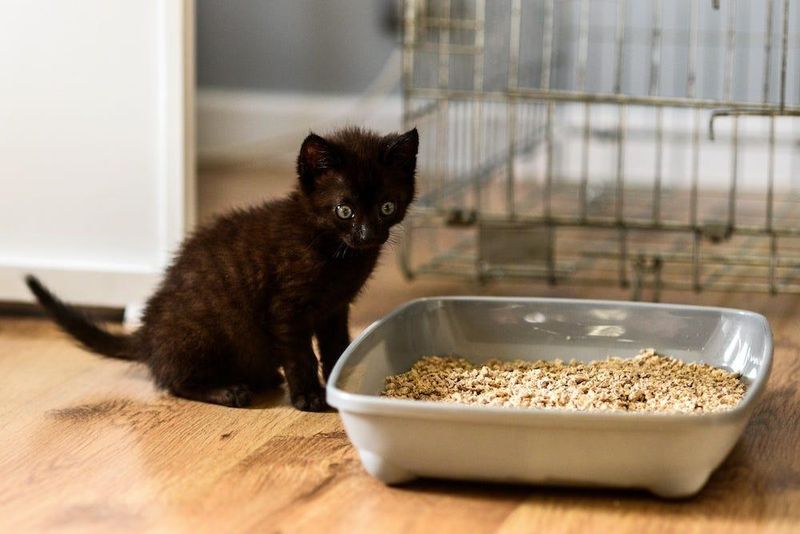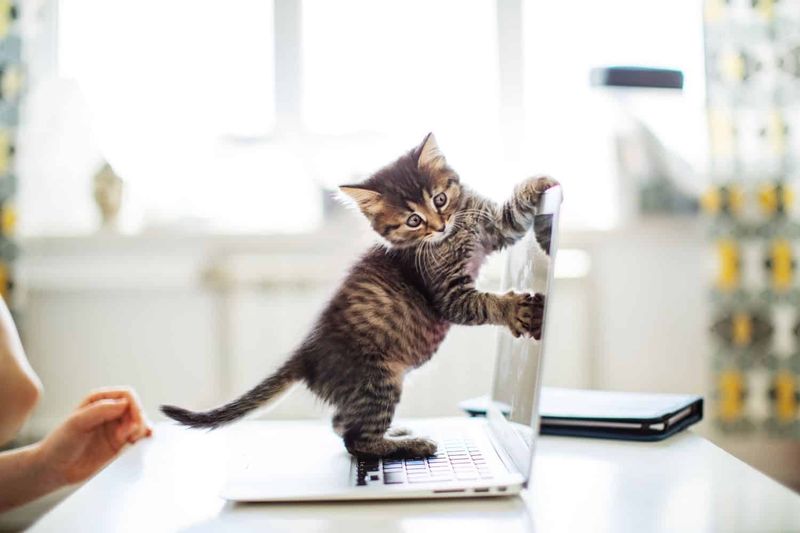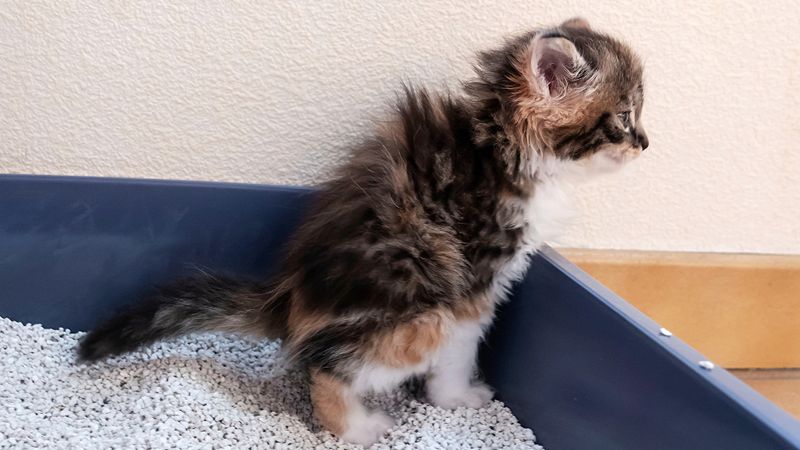📖 Table of Content:
Most cat owners are well aware of the telltale signs of stress in their feline companions: hiding under beds, excessive grooming, or sudden aggression. But far fewer recognize how deeply anxiety can affect a kitten’s most basic bodily functions—especially their bathroom habits. While it may seem like a trivial or mildly frustrating issue, abnormal poop behavior in kittens often signals underlying emotional distress that deserves attention.
Young cats are especially sensitive to environmental changes and emotional stimuli. Because their digestive systems are closely tied to their central nervous system, even mild stressors like unfamiliar visitors or new household routines can spark gastrointestinal upsets. As a result, disruptions in their litter box patterns may be one of the first, and most reliable, indicators that something is amiss in their emotional world.
Understanding the subtle and not-so-subtle ways anxiety impacts defecation habits in kittens can help owners address the problem with empathy and early intervention. Whether it’s avoiding the litter box altogether or suddenly producing loose stools, these signs should be taken seriously rather than chalked up to misbehavior. Here are seven surprising and unsettling ways your kitten’s anxiety might be showing up in their poop habits.
1. Avoidance of the Litter Box
Sometimes a kitten may begin to view its litter box as a place of discomfort rather than relief. This could stem from a single negative experience—like being startled while pooping—which becomes associated with that location. Instead of using the box, they may choose to relieve themselves in less exposed or quieter areas of your home. The behavior can appear sudden and puzzling, but it often stems from fear-based decision-making. Kittens are keenly aware of their surroundings and will adapt their behavior if they feel unsafe. Unfortunately, this often means your carpets, closets, or bedsheets become the unintended targets. A pattern of consistent litter box avoidance can quickly develop if the root anxiety isn’t addressed.
2. Constipation from Suppressed Urges
For kittens experiencing anxiety, the instinct to hold in bowel movements can override the physical urge to go. They may feel too vulnerable or threatened to relax enough for elimination, especially if their environment is chaotic or unpredictable. Over time, this avoidance behavior can lead to chronic constipation, with painful and infrequent stools. You might notice them straining in the box with little to show for it, or skipping poop days altogether. This cycle can cause discomfort, which in turn adds another layer of stress to the situation. The physical tension of fear or overstimulation has a direct impact on the smooth muscles of the digestive tract. Left untreated, it can escalate into a health crisis requiring medical intervention.
3. Diarrhea Due to Overactive Nerves
Stress can stimulate the kitten’s sympathetic nervous system, triggering the body’s natural “fight or flight” mode. As blood is redirected away from the digestive system, the body struggles to properly process food, often resulting in diarrhea. These episodes may seem to appear out of nowhere, but they frequently coincide with stressful events or disruptions in routine. Diarrhea in this context can be frequent, watery, and accompanied by urgency. The poor kitten may not even make it to the box in time, leaving messes in random areas. Unlike dietary causes, anxiety-induced diarrhea often resolves when calm is restored. Identifying the emotional trigger can be crucial in preventing future flare-ups.
4. Changes in Poop Frequency
Fluctuations in poop frequency are another red flag that anxiety is affecting your kitten’s internal clock. One day they may go multiple times, and the next they might not poop at all. This irregularity is the digestive system’s reaction to the ups and downs of the kitten’s stress levels. Rather than a consistent daily rhythm, the bowel movements become unpredictable and erratic. Stress hormones like cortisol can speed up or slow down gut motility depending on the kitten’s perceived level of safety. These changes are often subtle at first but can develop into patterns over time. Monitoring frequency closely can help pinpoint when anxiety spikes are occurring.
5. Eating Litter or Feces (Coprophagia)
Occasionally, a kitten under psychological strain may begin engaging in unusual behaviors like eating their own stool or the litter itself. While shocking to observe, this behavior is often a coping mechanism in response to a lack of stimulation or persistent stress. It may also be rooted in an attempt to mask signs of vulnerability, especially in multi-pet households. The behavior not only poses health risks due to potential ingestion of bacteria and toxins but also signals an urgent need for environmental enrichment. Kittens need both mental and physical outlets to feel secure. Coprophagia is a serious behavioral red flag that should not be ignored or punished. Instead, it calls for a compassionate investigation of the kitten’s daily routine and mental well-being.
6. Pooping During Play or Exploration
During moments of high excitement or anxiety, a kitten may suddenly lose control of its bowels. You might find tiny accidents scattered mid-play session or while the kitten is exploring new territory. This is often a result of overstimulation or a sudden fright that causes the nervous system to override normal control mechanisms. The response is typically involuntary and may be accompanied by other signs of stress like flattened ears or crouching. While it may seem like a training issue, it’s actually rooted in a neurological reaction to environmental cues. Recognizing this connection can help you approach cleanup and future prevention with more understanding. Reducing surprise triggers and providing calming play spaces can significantly reduce incidents.
7. Unusual Posture or Straining
When anxiety manifests physically, you might notice your kitten adopting strange positions while trying to poop. They may hunch, shift their weight oddly, or even cry out as they attempt to go. These physical signs are often mistaken for medical conditions like infections or blockages. However, in some cases, the root issue is psychological—tight muscles and general tension can make defecation painful or inefficient. Straining may become a learned behavior as the kitten associates the act with discomfort or fear. Watching for changes in pooping posture can provide early insight into stress-related complications. Addressing the anxiety behind the behavior can ease both the process and the kitten’s distress.
